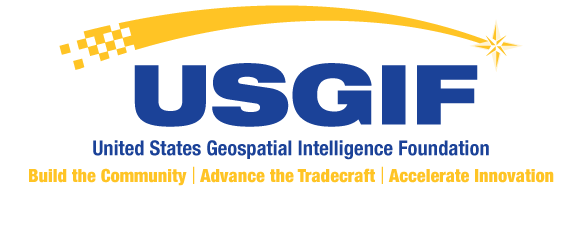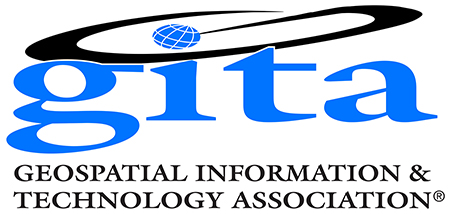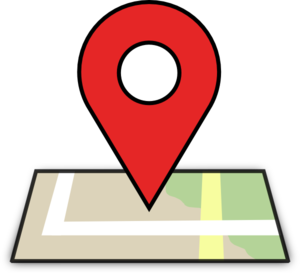The geographic information technology (GIT) mission of the University is to provide first-rate education and technical training within the region, foster technology development and transfer to Mississippi’s government and business sectors, and to develop an institutional center of expertise and knowledge for the region.
Mission & Vision
Academic Best Management Practices: Geospatial Information Technologies in MS
The top priorities for the Geospatial Center at Delta State University are conduct cutting-edge research and development activities, provide global industry thought leadership, and develop the geospatial industry in our home region. A key strategy for achieving the latter is to build a highly qualified cadre of interns and graduates in partnership with industry and leverage the relatively low cost of doing business in Mississippi against an attractive alternative to high-cost locations such as Palo Alto, the Research Triangle, and Denver. To accomplish these objectives and in concert with our prior expertise, we have assembled facilities and a team of faculty capable of handling the most complex geospatial projects.
Our production facilities include 32 dedicated GIT workstations, 6 spatial data servers (~12 TB total on-site storage), 2 large format plotters capable of producing mapping products up to 60” in width (archival quality waterproof inks are available), a 42” high resolution scanner, digital imaging, WAAS enabled and RTK GPS equipment, and large disk storage array systems. We are site licensed for all Microsoft, ESRI, Intergraph, ENVI, and Leica products. In cooperation with the aviation program and In Time, we are able to fly imaging missions using a Cessna L-206 or bring qualified pilots with us nationwide to assist with projects. Our production team is led by Talbot Brooks and comprises more than 25 faculty, staff, undergraduate and graduate students trained in cadastral data processing, image rectification, field data collection, spatial database, Internet delivery of geospatial technologies, network construction and analysis, basic computer science, and computer programming (.NET, VB, Python, FORTRAN, php, C#, and C).
We are able to leverage these resources and our low labor cost to compete with global outsourcing providers for GIT. Our purpose in doing so is to provide practical training for our students and transfer of our knowledge to our clients. After projects have run for 3-36 months, they are transferred to our private sector partners for continuation. In this way, we lower the entry point cost for parties interested in engaging in GIT projects and create new business and trained employees for the private sector. We will never directly compete with US interests for GIT projects, but rather seek mutually beneficial partnerships that advance the implementation and understanding of this rapidly growing technology nation-wide.
About internships, cooperative education, and rural outsourcing
Basic geospatial data collection and processing is currently largely outsourced to India and Far-Eastern countries. While technical proficiency is needed to perform geospatial collection and data processing tasks, this training need not be advanced. Basic mapping of infrastructure, geo-rectification, geocoding, data review, and other repetitive or labor, intensive processes may be accomplished by individuals with 6-12 months of training. The population of the Mississippi Delta is particularly well suited to performing this type of work as a large portion of the population has had exposure to geospatial technology through seasonal agricultural work, hunting/fishing guide services, and prior military service.
Our program seeks to provide an alternative to international outsourcing by linking introductory training such as Specialist and GIS Certificate programs with practical experience, which will be accomplished primarily through the creation of a “Rural Out-Sourcing” program. This program will seek governmental and business partners in need of basic geospatial services. Using cooperative research, development, and training agreements, not-for-profit fixed price contracts will be created that allows partners to create paid internships for students and community members. We envision a 3-5 year time window during which an increasing number of partners will engage the Center in basic spatial services. As individual relationships mature into larger time commitments, the Center will seek to privatize the effort by handing off projects to the private sector, or in their absence, through the creation of a new company or other equitable means.
It is critical that this program not compete with the U.S. private sector, yet it must remain as responsive and flexible. As such, each partnership training and rural outsource program will exist for a fixed period of time while generally conforming to private industry business standards for pricing and overhead costs. To maintain the educational integrity of this program, each local participant will be required to enroll in a minimum of one geospatial technology-oriented class for each six months worked and participate in a mandatory internship course that requires regular reports on lessons/skills learned, contemporary geographic thought, and professional development (eg., public speaking, creation of technical presentations).
By engaging the Center for Interdisciplinary Geospatial Information Technologies at Delta State University, our partners are acknowledging the training and education basis of this program and are not using it to foster or gain unfair competitive advantage in any fashion.
About the Center
While academics are a central focus for the Geospatial Center, we do so very, very much more. Students come first here. That means giving them the tools and experience needed to not only succeed academically but in the workplace. Our students have ample opportunity to:
- Gain work experience through internships and technician positions available in our labs and with our partners. Most students graduate our programs with the equivalence of 2-years of full-time experience.
- Professional exposure. Our students have ample opportunity to engage the profession beyond the classroom. They travel with our faculty to observe NGAC meetings, participate in UN technical advisory missions, present at national conferences, and similar. They are also given full access to our contracting processes, internal finances and budgets, and some even take on supervisory roles before graduating.
- Finance their education without taking on tremendous debt. We make financial resources available beyond just the Federal Student Aid program available. Scholarships, paid internships, and similar programs help most all of our students.
The Center is also committed to thought leadership. Our faculty go beyond their advanced degrees and have significant industry experience, play national and global leadership roles in the geospatial industry, and are recognized-innovators. Moreover, we work to actively shape the discipline through professional societies and organizations.
We also have the heart to “fight above our weight class”. DSU may be a medium-sized university in rural Mississippi, but we engage in big things and big ideas. This takes on many roles, whether deploying to support a crisis (the Center has supported more than 60 disasters globally) or working with industry giants like Esri to help them integrate the US National Grid into their software.
Partners
The Center plays an active leadership role within the organizations below. Students are strongly encouraged to participate in a variety of ways.
Our Partners
Mississippi is a national home for GIT – it is the top technology priority for our state. Our state partners include the Mississippi Automated Resource Information System (MARIS), the Mississippi Coordinating Council for Remote Sensing and GIS, NASA’s Stennis Space Center, the US Air Force’s Space Command, the USDA Agricultural Research Centers at Starkville and Stoneville, Intergraph Corp., Delta and Pineland, Georgia Pacific, In Time, Mississippi Emergency Management Agency, Mississippi Office of Homeland Security, Mississippi Institute for Higher Learning, and NOAA’s National Institute for Undersea Science and Technology. Of special note are the close partnerships we’ve developed with local emergency responders that are fostering the development of significant new approaches and technologies for disaster/crisis planning, mitigation, response, and recovery. These agencies and organizations strongly support geospatial technology training, research, and development at Delta State University and are our partners in all research and technology development.

Mississippi Delta Community College
Mississippi Delta Community College (MDCC) is located in Moorhead, MS. They provide core online education in support of the General Studies requirements for our online bachelor’s degree program. Moreover, students participating in our programs may earn an Associate’s of Arts in General Studies and more through their exciting programs.

United States Geospatial Intelligence Foundation
The United States Geospatial Intelligence Foundation (USGIF) is the premier professional society which supports education and training for the geospatial intelligence (GEOINT) workforce. The Center plays in active role in helping USGIF shape their credentialing programs whereas USGIF helps inform our coursework, professionally develop our faculty, and, eventually, professionally accredit our degree programs.

Geospatial Information and Technology Association
The Geospatial Information and Technology Association (GITA) is the largest professional society supporting education about the application of geospatial technologies to critical infrastructure, Homeland security, and the energy industries. Center members have long played leadership roles within this organization and students often present at GITA’s various meetings and seminars. Many Center graduates now work for GITA affiliated companies.
GIT and Industry Leadership
- The National Geospatial Advisory Committee. The body is appointed by the Secretary of the Interior and is responsible for advising the Federal government about geospatial policy.
- The Geospatial Information and Technology Association (GITA). GITA is a professional society dedicated to geospatial education for those using geospatial to manage and protect critical infrastructure. The Center also maintains a student chapter for GITA.
- The Mississippi Coordinating Council for Remote Sensing and GIS. The Council is a legislatively mandated body responsible for geospatial plans and policy in Mississippi. Members include the Executive Directors of most state agencies and other appointees.
- The United Nations Platform for Space-based Information for Disaster Management and Emergency Response (UN-SPIDER). An extension of the UN Office for Outer Space Affairs, UN-SPIDER facilitates capacity building and the use of space-based systems for disaster risk reduction, response, and recovery. Center faculty participate as experts on technical advisory missions and host an annual meeting at DSU.
- The US Geospatial Intelligence Foundation (USGIF). The Center serves a role on USGIF’s Certification Governance Board.
- The National Fire Protection Association (NFPA). The Center provides technical advice for the NFPA 950 and 951 standards.

No Out-of-State Fees

USGS and NGA Center of Academic Excellence in Geosciences

Signature Program at Delta State
GET IN TOUCH
Talbot J. Brooks, Director
662.846.4520
tbrooks@deltastate.edu
Chris Smith, Program Manager
662.846.4521
cdsmith@deltastate.edu
Mailing Address
GIT Center
Delta State University
Box 3325
Cleveland, MS 38733-3325
Shipping Address
GIT Center
Delta State University
1417 Maple St.
Cleveland, MS 38733
Physical Address
GIT Center
Kethley Hall, Suite E
Delta State University
US National Grid
15SYT098364


